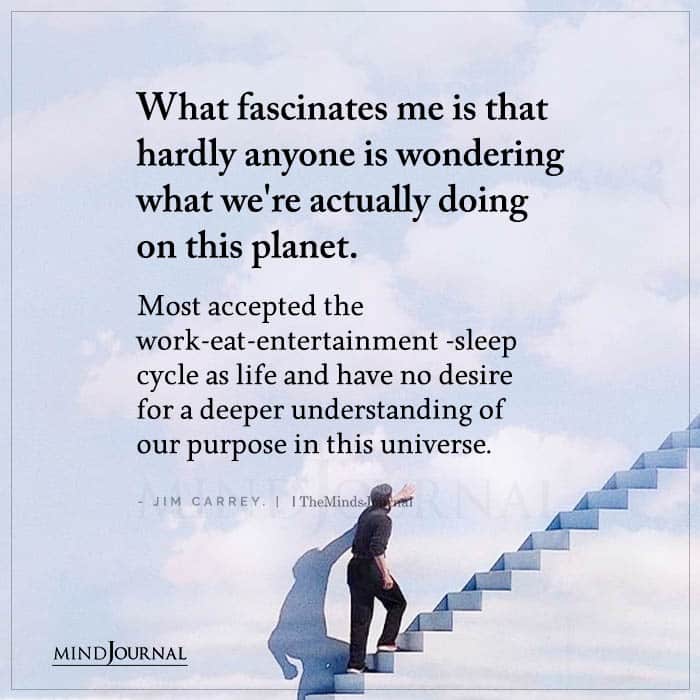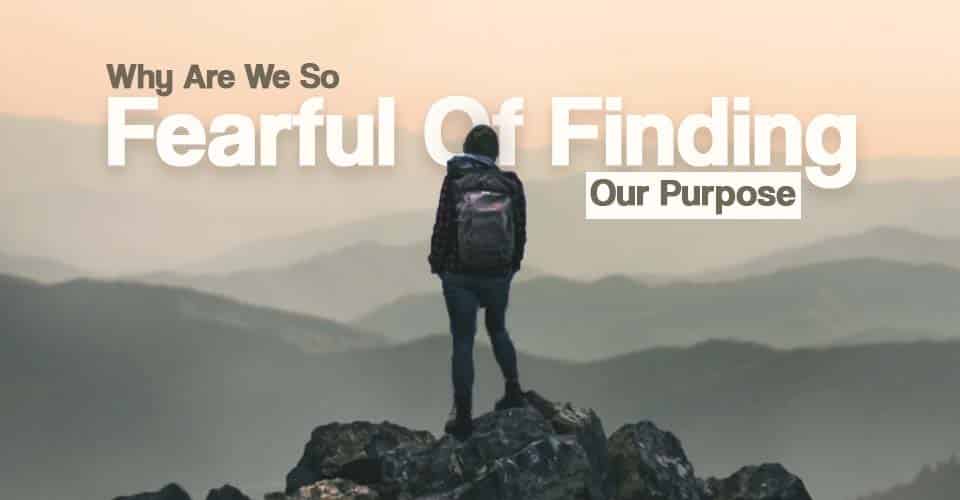Finding your purpose in life sounds very exciting and meaningful, and even though it is important for living a full life, the truth is most people are fearful and cautious of actually finding it.
Some people lead a two-mountain-shaped life, as Peter Brooks describes it in his article on the perils of moral meritocracy. First, they go through the motions of graduating from school, beginning a career, starting a family. They want to become successful in ways society sanctifies and conditioned them to pursue. They want to earn a lot, buy a home, raise a family, and be happy by achieving all this. This is the first mountain they are eager to climb. Nothing wrong with that, unless your focus stops there.
These hustling years are powerfully shaped by our individualistic and meritocratic culture. People wrapped up in their own egos operate under the assumption that happiness and fulfillment come only from achieving such goals as excellence, losing weight, or following certain self-improvement techniques.
Related: 7 Ways To Find Your Purpose in Life
This phase can go on forever or it can end suddenly due to an unexpected event that’s completely out of your control. In the lives of the so-called second-mountain people, something happened that interrupted the pre-planned, linear existence they had imagined for themselves based on what society instilled into their heads. The force of this external event exposed the problem with living only according to individualistic, meritocratic values.
This awakening for some happens when they have achieved success and found it unsatisfying. They realized there must be more to life. They figured they needed a higher purpose. Others failed. They lost their job, got financially destroyed, or endured some tragedies. They had a cancer scare or suffered the loss of a child. These tragedies made the first-mountain victories seem not so important. They have understood that life is about how we deal with moments of great adversity.

Some people are crushed by these events. Others realize that as one door closes another opens. Those who wake up often change their lives radically at this point. They quit corporate jobs and teach elementary school. They dedicate themselves to some social or political cause. Paradoxically, this is exactly why many people are deeply afraid of figuring out their purpose in life.
They fear it will require them to completely change their lives which inevitably leads to the manifestation of their worst fears. Hence, they keep themselves from asking the deeper question about the meaning of their work and existence. It is either the first or the second mountain for them.
If the first mountain is about building up the ego and defining the self, the second is about belonging to a larger system or community. If the first mountain is about acquisition, the second is about contribution. But what if instead of the mountain analogy we imagine it as a balance scale with ego and soul being on the two plates?
We are constantly toggling between these two states: feeding the ego vs. feeding the soul. Total balance is, of course, an illusion but we can strive to have a purpose so that we can impact the people and the world around us in a positive way while also achieving our goals.
Related: How To Answer Your Calling And Find Your Life Purpose
In the case of organizations, some people are there only to serve their individual self-interests — and draw a salary. Others find meaning in their work and set an intention to make a positive difference in the lives of others. Some organizations even expect that you commit to a shared cause and change your allegiance from your ego to what we call the “Soul” of the organization.
We don’t treat one another well. And the truth is that many years of a hyper-individualistic first-mountain ego culture have weakened the bonds between people. Focusing solely on the ego and how to succeed at all costs lead to crippling tribalism, disconnection, and spiritual and moral crises.
But people striving to create a balance between feeding their egos and feeding their souls can blaze the trail for forming new kinds of communities based on a higher purpose and meaningful relationships instead of hatred, fragmentation, and tribalism.
If you want to explore how to use the unique Success MindsetMaps coaching tool for yourself or your clients please check out the upcoming MindsetMaps Coach training on this link.
Written By Mickey A. Feher Originally Appeared On Psychology Today










Leave a Reply